Global economic and sustainable development: the pioneering role of the Permanent Representation to OECD
The Organisation for Economic Co-operation and Development (OECD), headquartered in Paris, plays a crucial role in crafting policies for economic progress and sustainable development across the globe. With its guiding principle of ‘Better policies for better lives’, the OECD is a testament to collaborative international efforts aimed at enhancing quality of life worldwide. At the forefront of these efforts is the Permanent Representation of the Netherlands to the OECD, which champions Dutch interests, including areas critical to agriculture, nature, and food quality.
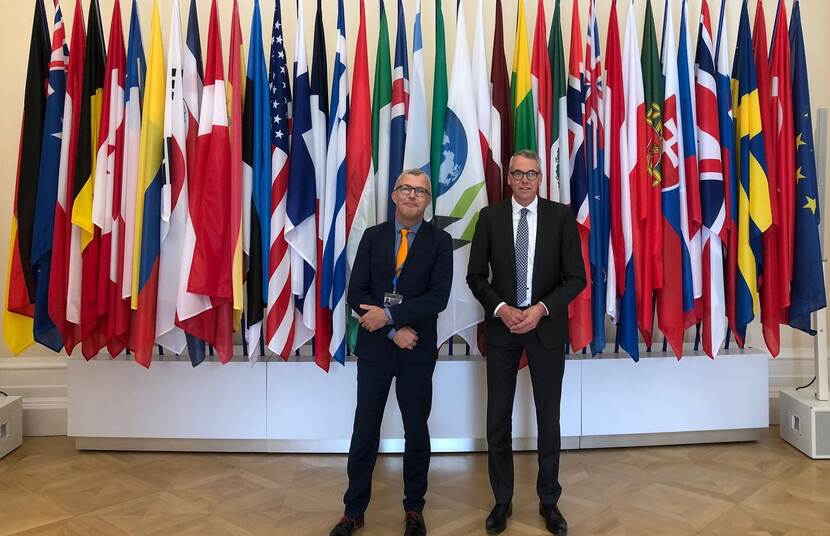
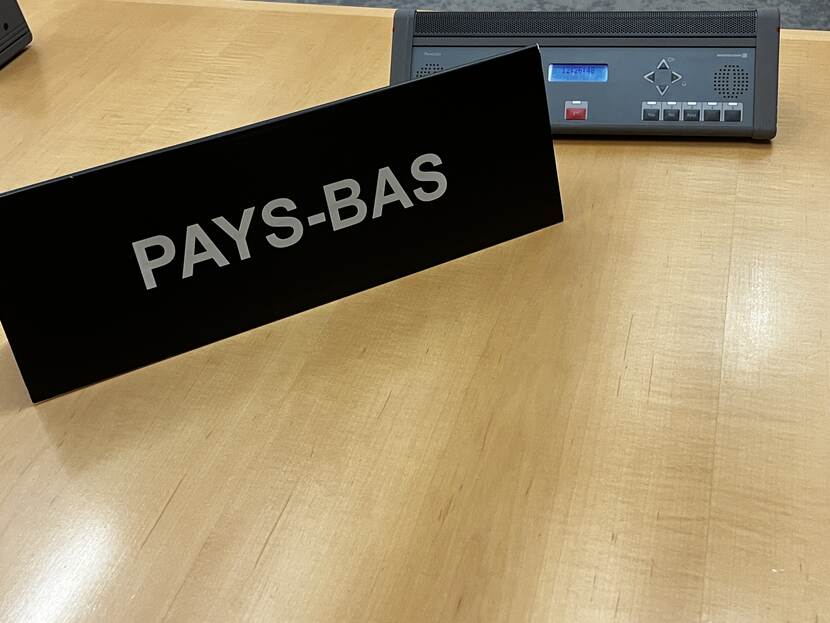
The OECD has a Program of Work and Budget (PWB) which is determined on a two-year basis by all Member States. Led by the Secretary-General Mathias Cormann, the OECD secretariat includes directorates and divisions working with global policymakers to provide insights for evidence-based policymaking. With 3,300 employees, including professionals in economics, law, science, analysis, statistics, and communication, the secretariat supports various fields, from economics to digital technology. For the Ministry of Agriculture, Nature and Food Quality (LNV), OECD projects on agriculture, biodiversity, fisheries, and rural development are the most relevant. For example, projects on sustainable agricultural trade, but also on effective instruments for financing biodiversity projects.
OECD secretariat
Hence, the three most important departments of the OECD secretariat are:
- The Trade and Agriculture Directorate (TAD), which provides policy analysis and advice to help governments develop trade, agriculture, and fisheries policies that contribute to more inclusive and sustainable growth.
- The Environmental Directorate (ENV), which helps OECD members design and implement effective policies to address environmental problems and sustainably manage natural resources. It examines the links between the environment and economic, sectoral, or social concerns, such as climate change, biodiversity, water, the ocean, resource efficiency, environmental taxes, genetically modified crop safety, and agriculture.
- The Centre for Entrepreneurship, SMEs, Regions, and Cities, which helps local and national governments promote inclusive and sustainable regions and cities, boost local job creation, implement sound tourism policies, and facilitate the potential of entrepreneurs and small and medium-sized enterprises.

Permanent Representation and the creation of an international perspective
Member States of the OECD appoint Permanent Representations to help shape and participate in OECD's activities while also providing updates to their respective capitals. Thus, the Permanent Representation of the Netherlands to the OECD represents Dutch interests across various policy areas. The team comprises the ambassador, deputy ambassador, economic counselor, LNV counselor, senior policy advisor social affairs, second embassy secretary, and two management assistants. It is stationed at and operates from the Embassy of the Netherlands in Paris.
The LNV counselor’s main goal is to enhance the visibility of Dutch agriculture within the OECD framework. He promotes the inclusion of the Dutch agricultural sector in the OECD projects, while also influencing the agenda to prioritize key issues affecting the Dutch agricultural sector. Furthermore, he is involved in, for example, organizing seminars that showcase Dutch agricultural policies, often complemented by accompanying papers, like an upcoming paper on regional inequality in the Netherlands.
The Permanent Representation is an important body for the Ministry of Agriculture, Nature, and Food Quality to help create an (inter)national perspective on issues related to food security, sustainable agriculture, sustainable agricultural trade, and rural development. The Permanent Representation works closely together with the ministry to develop and shape Dutch positions on key OECD initiatives regarding these issues.
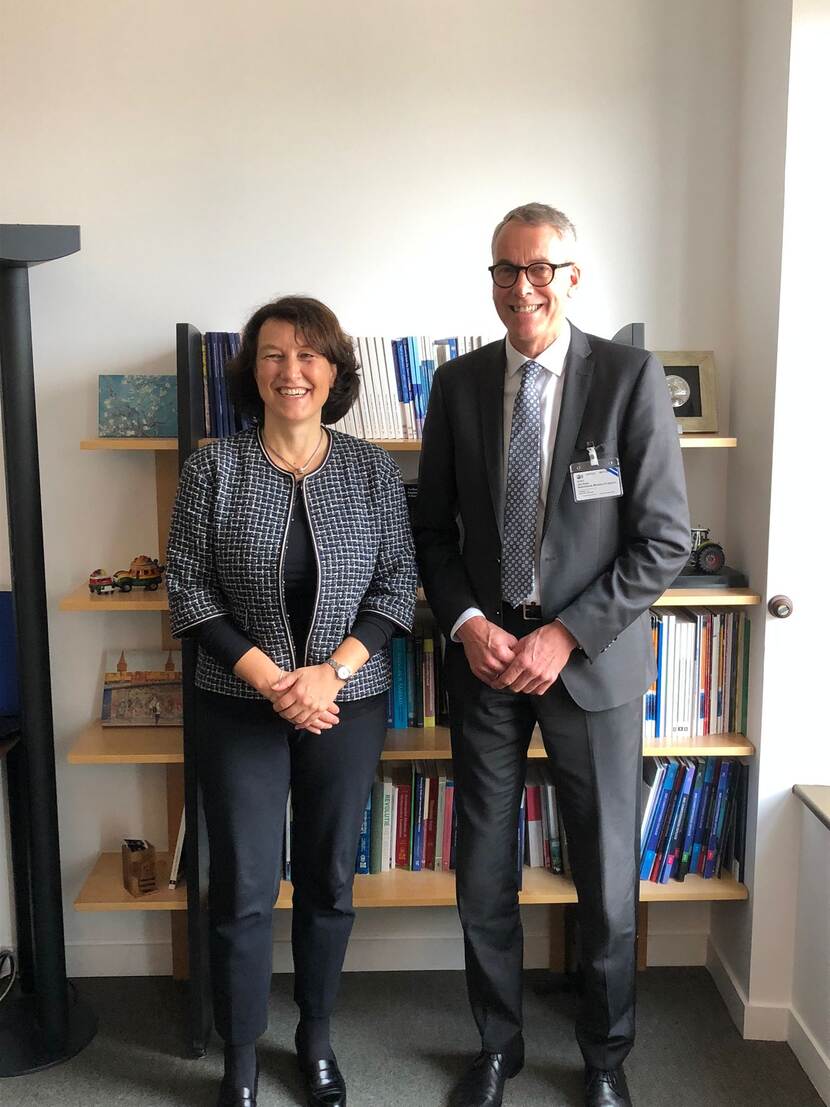
Promoting Dutch interests and determining the OECD agenda
A significant part of the Permanent Representation’s capacity is spent actively participating and supporting colleagues from The Hague in meetings of the working parties and committees of the OECD on agriculture, fisheries, rural policies, climate, and biodiversity. Also, the Representation helps in communicating about the OECD’s activities to inform the Ministry of LNV's stakeholders, which include government officials, policymakers, industry representatives, non-governmental organizations, and researchers.
Communication with stakeholders often involves various channels, such as: newsletters (see section: “Follow the latest developments”), workshops, and seminars. For example, in 2023 we collaborated with our bilateral colleagues in Paris for a seminar on rural uneasiness, which was recorded and published online. The aim of this seminar was to delve deeper into regional inequality and societal discontent from different perspectives (France, Netherlands, and OECD). We also try to learn from other countries and the OECD secretariat. By organizing two seminars, for example: one on (policies for) strengthening the position of farmers in the food chain, and one more technical/methodological seminar on the possible impact of agricultural subsidies on biodiversity.
Moreover, we encourage Dutch scientists to engage with the OECD in projects, expert groups, as well as employment within the OECD. For instance, an environmental scientist specializing in agricultural adaptation strategies to climate change or an agricultural economist focusing on sustainable agricultural development could contribute valuable insights.
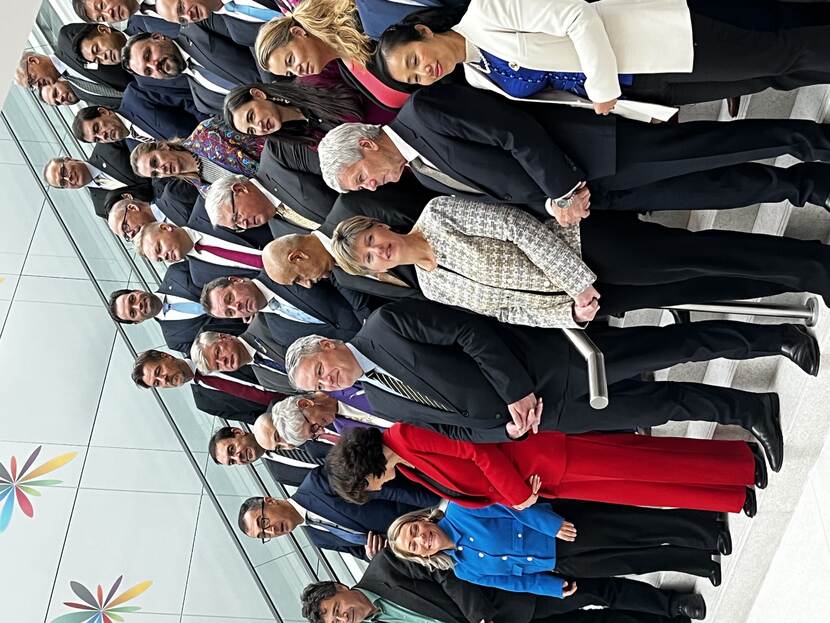
Program of Work and Budget 2025-2026
The Permanent Representation of the Netherlands to the OECD embodies a crucial link between Dutch policies and global initiatives, significantly influencing the OECD's work on agriculture, environmental sustainability, and rural development. By actively participating in key OECD meetings, and promoting Dutch engagement, the Representation not only advances the Netherlands' interests but also contributes to the broader OECD agenda. In line with the policy priorities of the Netherlands and the PWB 2025-2026, the Representation will specifically focus on the following five themes:
- green transitions (climate, energy, raw materials and agriculture);
- fair and inclusive trade and sustainable supply chains;
- economic research, fiscal challenges, and taxation;
- digital transitions;
- global outreach, development assistance and finance.
These themes are relevant for promoting sustainable development, addressing global challenges, and encourage inclusive growth. They also reflect the priorities of the Netherlands and contribute to achieving a resilient, fair, and sustainable society, in the Netherlands but also worldwide.
‘The Permanent Representation of the Netherlands to the OECD embodies a crucial link between Dutch policies and global initiatives’
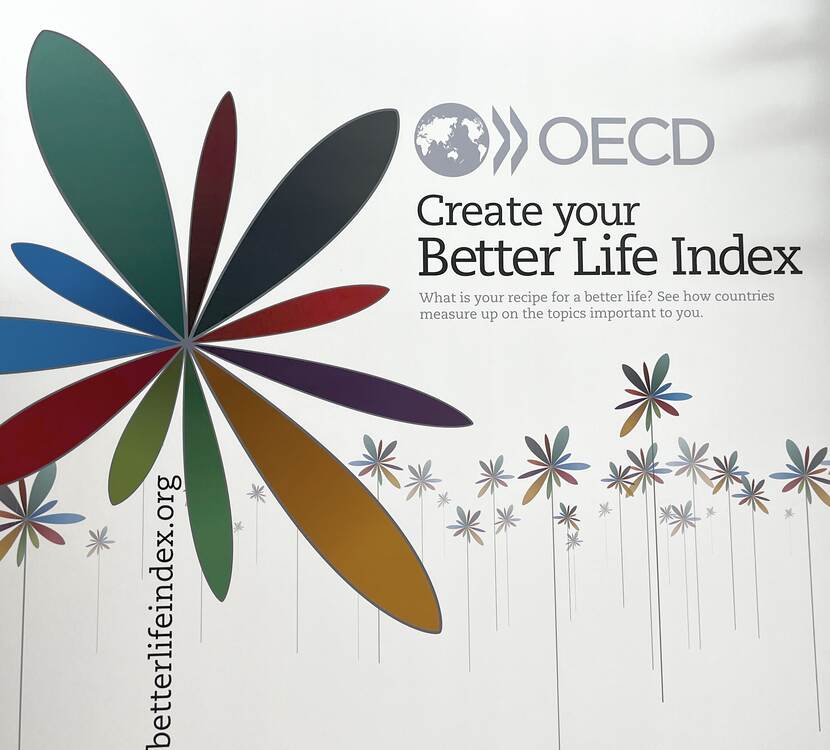
Stumbling blocks and successes
Some of the successes we have experienced include witnessing an increase in colleagues from both within and outside of LNV participating in OECD activities, as well as a rise in OECD's visibility in Dutch media, for example the Policies for the Future of Farming and Food in the Netherlands report. Another success has been the growing attention and interest of the agrifood sector to the OECD guidelines and guidance regarding due diligence.
Sometimes, the debates on measuring agricultural policy support are difficult. The different views between, for example, the EU, Australia, and the USA on agricultural policy within the OECD are challenging. Moreover, the accession of new members to the OECD is a road with many stumbling blocks. Candidates for accession are:
- Argentina
- Croatia
- Bulgaria
- Romania
- Peru
- Brazil
- Indonesia (candidate since February 2024)
- Ukraine (potential candidate)
New member countries start with underlining the basic principles of the OECD (as laid down in the vision statement of the organization) and will be assessed in relevant OECD policy committees and working groups.
In this upcoming period, the Permanent Representation will continue with communication efforts (via newsletters and seminars) as well as help determine the work of the OECD by attending meetings of OECD committees and working groups and promote Dutch scientist to work at the OECD secretariat.
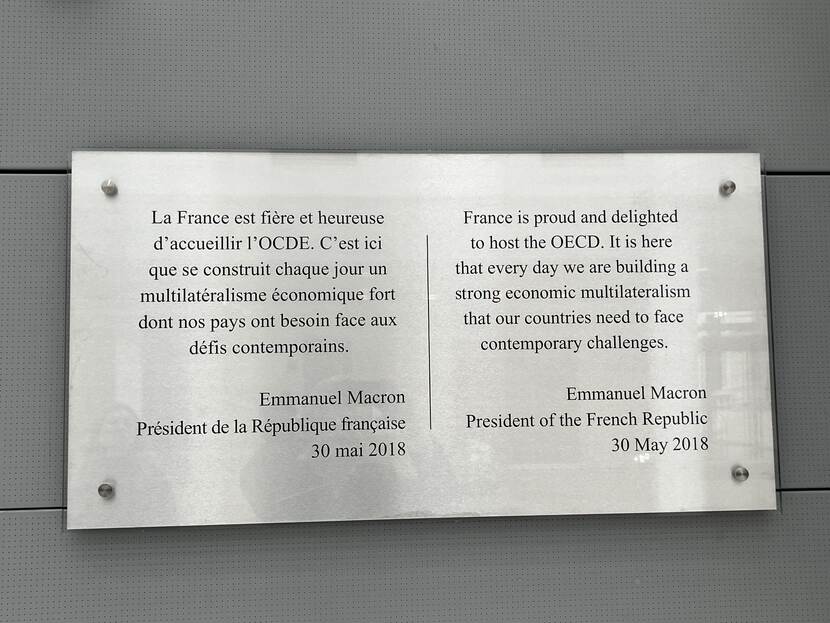
Follow the latest developments
Stay updated on the latest developments in the agricultural sector, environment, and rural policy by subscribing to our newsletters. The newsletters offer trends and developments regarding OECD efforts in these areas:
- agriculture;
- environmental policy;
- rural policy.
Subscribe by sending an email to pao-lnv@minbuza.nl and indicate which newsletter(s) you are interested in. Please note that they are exclusively offered in Dutch.
Read more
Contact
- Address: Permanent Representation of the Netherlands to the OECD in Paris, 7, rue Eblé, 75007 Paris, France
- E-mail: PAO-LNV@minbuza.nl
- Phone: 0033 14062 3347 / 3313
- X: @AgriPV_OESO
- Website (in Dutch): Permanente Vertegenwoordiging van Nederland bij de OESO
- Website (in English): Permanent Representation of the Netherlands to the OECD
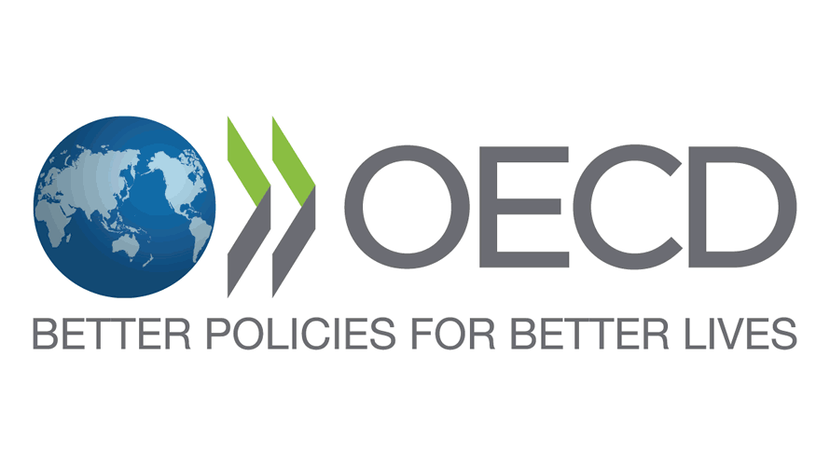
This article is part of the 10th edition of the e-magazine Agrospecial titled "Efforts of the Netherlands in multilateral policy" (originally published on March 27 2024).
In this Agrospecial the Netherlands Agricultural Network showcases the work of the Permanent Representations (PermReps) of the Netherlands. The Ministry of Agriculture, Nature and Food Quality in the Netherlands has PermReps at different international organisations: EU in Brussels, OECD in Paris, FAO/IFAD/WFP in Rome and WTO in Geneva. Their assignment: to tackle major global challenges in agriculture, fisheries and biodiversity through multilateral policy.